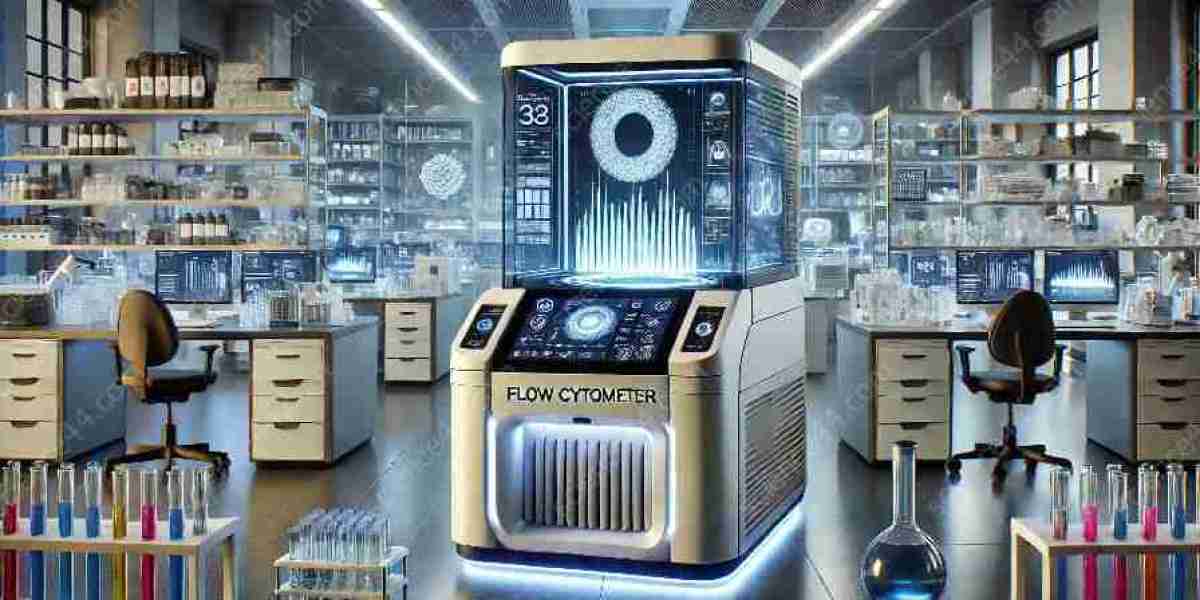Introduction
Flow cytometry has long been a vital technology in healthcare and life sciences, used extensively in research, diagnostics, and drug development. The integration of artificial intelligence (AI) and automation is revolutionizing the field, enhancing efficiency, accuracy, and scalability. This article explores how AI and automation are transforming the flow cytometry market, driving new opportunities in healthcare and research.
The Role of AI in Flow Cytometry
1. Enhanced Data Analysis and Interpretation
AI-powered algorithms are improving the speed and accuracy of flow cytometry data interpretation. Traditional manual gating methods require expert input and can be time-consuming. AI-driven automated gating solutions analyze complex datasets rapidly, reducing human error and increasing reproducibility.
2. Machine Learning for Pattern Recognition
Machine learning models are being trained to recognize cell populations, classify abnormalities, and detect rare cell events with higher precision. These capabilities are crucial for applications in cancer diagnostics, immunology, and infectious disease research.
3. Predictive Analytics for Personalized Medicine
AI enhances predictive modeling by analyzing patient data and biomarker profiles. Flow cytometry, combined with AI, allows for better disease prognosis and targeted therapy recommendations, particularly in oncology and immunotherapy.
4. Real-Time Data Processing
AI-driven real-time analytics improve workflow efficiency in high-throughput environments. Automated data processing reduces turnaround time for diagnostics, making flow cytometry a more viable tool in clinical decision-making.
The Impact of Automation on Flow Cytometry
1. Automated Sample Preparation and Handling
Automation minimizes variability in sample preparation, ensuring consistency and accuracy in flow cytometry assays. This is particularly beneficial in large-scale clinical and research laboratories where high sample volumes are processed daily.
2. High-Throughput Screening and Workflow Efficiency
Automated flow cytometry systems can process thousands of samples per day, increasing throughput and scalability. This capability is critical for applications such as drug discovery, vaccine development, and cell therapy research.
3. Standardization and Reproducibility
Automated systems ensure standardized protocols, reducing human-induced variability. This is particularly important in regulatory environments where consistency in diagnostic and therapeutic applications is required.
4. Remote and Cloud-Based Data Management
The integration of automation with cloud-based platforms allows researchers and clinicians to access and analyze flow cytometry data remotely. This facilitates collaboration and improves data-sharing across institutions.
Future Prospects and Challenges
1. Integration with Digital Health and AI-Driven Diagnostics
The combination of flow cytometry with digital health technologies will enable real-time patient monitoring and AI-assisted diagnostics. These advancements could revolutionize disease detection and treatment planning.
2. Development of Fully Automated, AI-Driven Flow Cytometry Systems
As AI and automation continue to advance, the development of fully autonomous flow cytometry systems will become a reality. These systems will enhance diagnostic accuracy and accessibility, particularly in resource-limited settings.
3. Regulatory and Ethical Considerations
The widespread adoption of AI in flow cytometry requires regulatory frameworks to ensure data security, accuracy, and ethical considerations in automated diagnostics. Addressing these challenges will be crucial for market expansion.
Conclusion
The integration of AI and automation is transforming the flow cytometry market, enhancing precision, efficiency, and scalability. From AI-driven data analysis to automated sample processing, these advancements are paving the way for new opportunities in research and healthcare. As technology continues to evolve, flow cytometry will play an increasingly central role in diagnostics, personalized medicine, and cell-based therapies, shaping the future of modern healthcare.




